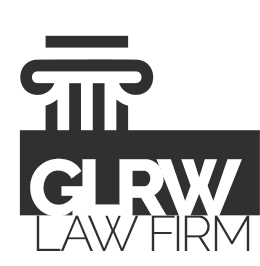
14 Oct Can New Jersey Landlords require tenants to pay electronically?
As the rental industry moves toward modern, streamlined business practices, many landlords prefer to accept rent payments electronically. Electronic payments offer convenience, minimize delays, and reduce the risk of lost or bounced checks. However, if you’re a landlord in New Jersey, you may be wondering whether you can require tenants to pay rent through electronic methods, such as online platforms, direct deposit, or apps like Venmo or Zelle. While it makes sense from a business perspective, New Jersey law imposes certain restrictions that limit landlords’ ability to mandate electronic payments.
Understanding Electronic Rent Payments: An Overview
New Jersey Law on Rent Payment Methods
Under N.J.S.A. 46:8-30, New Jersey law prohibits landlords from requiring tenants to pay rent exclusively through electronic means. The statute explicitly states that tenants must have the option to pay rent by cash, check, or money order. This ensures that tenants who may not have access to electronic banking or prefer traditional payment methods are not forced into using technology they are uncomfortable with or unable to access.
This law is designed to protect tenants, ensuring that everyone can pay rent in a manner that suits their financial situation. Mandating electronic payments could place an undue burden on tenants who are unbanked or do not have easy access to digital payment systems. Therefore, while landlords can offer electronic payment methods as an option, they cannot require it as the sole method for rent payment.
How Landlords Can Work Around This Limitation
While New Jersey landlords cannot legally require tenants to pay rent exclusively through electronic methods, there are ways to encourage tenants to choose electronic payments voluntarily. Here are a few strategies landlords can use:
- Offer Electronic Payments as a Preferred Option: Although you can’t require it, you can make electronic payment your preferred method by educating tenants on its benefits, such as quicker processing times, the convenience of automatic payments, and the ability to avoid late fees. Many tenants may find electronic payments appealing for these reasons and choose it over traditional methods.
- Provide Incentives for Electronic Payments: Another approach is to offer small incentives for tenants who agree to pay rent electronically. For example, you could offer a slight discount or waive late fees if rent is paid through an electronic method by a certain date. While you cannot penalize tenants for paying by check or money order, offering positive incentives for electronic payments is a legal and effective way to encourage their use.
- Streamline the Electronic Payment Process: Ensure that your electronic payment system is user-friendly and easy to access. The simpler the process, the more likely tenants will opt for it. Consider using a reputable rental management software or app that allows tenants to set up recurring payments, view their payment history, and get notifications for upcoming rent due dates.
- Request Electronic Payments in Lease Negotiations: During the lease negotiation process, landlords can ask tenants if they would be willing to pay rent electronically. If the tenant agrees and both parties are comfortable with the arrangement, the lease can reflect that preference. However, even if a tenant agrees to electronic payments initially, they must still have the option to switch to cash, check, or money order, per New Jersey law.
- Be Transparent and Communicative: Open communication with your tenants is key. When offering electronic payments, explain the benefits clearly and address any concerns they may have. Being transparent and responsive will help build trust and make tenants more comfortable with the idea of switching to electronic rent payments.
Conclusion
Although New Jersey law does not allow landlords to mandate electronic rent payments, there are still ways to encourage tenants to use this method voluntarily. By offering it as a preferred option, providing incentives, and ensuring a smooth, user-friendly process, many tenants will likely find electronic payments to be the most convenient choice.
As a landlord, it’s essential to stay compliant with New Jersey laws while finding ways to streamline rent collection. If you’re unsure about how to structure your lease agreements or implement electronic payment options, consulting with an experienced attorney can help you navigate these issues effectively and legally. Reach out to our office for expert guidance on this and other rental property matters tailored to landlords in New Jersey.




Sorry, the comment form is closed at this time.